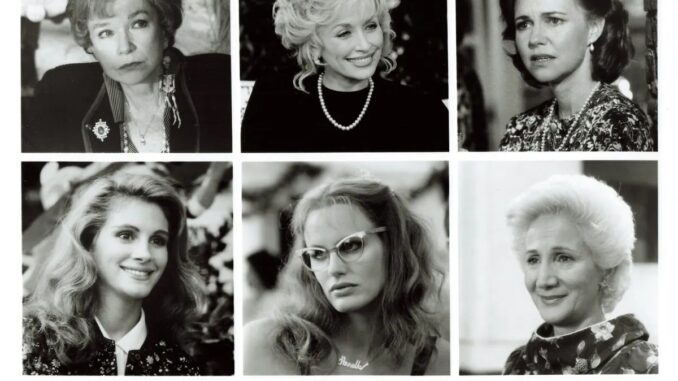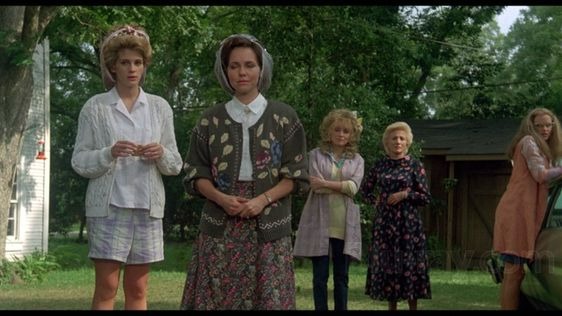
On Nov. 15, 1989, the Herbert Ross-directed dramedy Steel Magnolias opened in theaters across the U.S. Based on Robert Harling’s successful stage play and starring Sally Field, Olympia Dukakis, Shirley MacLaine, Dolly Parton, Daryl Hannah, and a promising young actress named Julia Roberts, it told the story of six Southern women who bonded over the comedy and tragedy life dealt them while hanging out at the local small-town hair salon.
Today, Steel Magnolias is considered a classic of that certain genre of films tailored to and marketed toward female audiences—“chick flicks.” In fact, the Wikipedia entry for “chick flick” lists Steel Magnolias as a “prominent example,” and a recent compilation of the “30 Best & Worst Chick Flicks” named it the fourth-best film in the genre and described it as “one of the quintessential chick flicks.” Steel Magnolias is now such an overwhelmingly gendered phenomenon that guys who like it and decide to publicize that fact on the Internet sometimes hedge their opinions with disclaimers like this one: “I am secure enough in my manhood to proudly proclaim that I enjoy chick flicks—good ones, at least.”

But there was a time, 25 years ago—before the molasses-sweet Steel Magnolias had jelled into its place in the grander canon of beloved girls’-night-in movies—when it was less clear what to really make of it. Early reviews were mixed: Some critics found it weepy but ultimately winning; others thought the film’s brassy sentimentality undermined its real emotional impact. And some took issue with its portrayals of men.
There were a few points, of course, that critics largely agreed upon. For starters, this Julia Roberts gal—then frequently identified as the newcomer sibling of established actor Eric Roberts—was a real winner. Mike Clark of USA Today wrote, presciently, that Roberts’ performance offered “further proof that she’s going to be a jumbo star.” In praising Roberts’ performance, Rolling Stone‘s Peter Travers referred to the actress as “actor Eric [Roberts’] radiant sister,” and David Ansen at Newsweek wrote that “Julia Roberts—who sparkled in Mystic Pizza—lights up the screen with her liquid fire.” (Reviews were divided on the rest of the cast. It remains unclear whether Shirley MacLaine, in particular, was the worst or best part of the film.)

Many critics also agreed that Steel Magnolias was some sort of lesser mutation of 1983’s Terms of Endearment. It did, after all, share elements like a mother-daughter bond interrupted by an illness, and Shirley MacLaine. According to the Globe and Mail, Steel Magnolias was “everything Terms of Endearment‘s detractors accused Terms of being.” Newsweek wrote that it “blatantly tries to trigger memories of Terms of Endearment.” Other creative comparisons identified Magnolias as “a sappy, melodramatic Terms of Endearment Goes South” (People), “like a road company version of Terms of Endearment” (the New York Times), and “for all its pretensions, … closer to Miss Firecracker than to Terms of Endearment” (Roger Ebert).
Hal Erickson’s widely syndicated review, for example, expressed some disappointment with the film’s handling of its supporting male characters: “The film stumbles a bit in it
